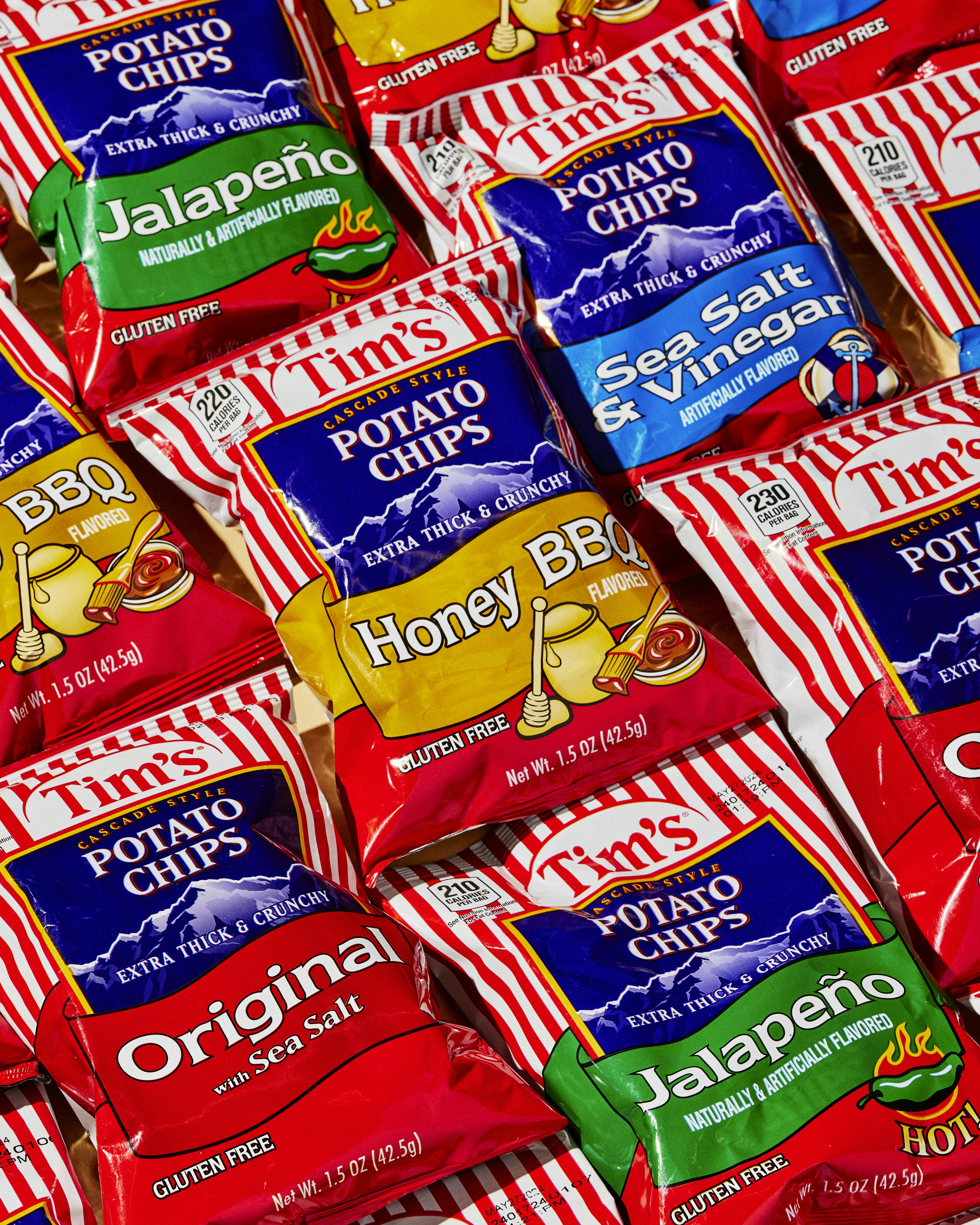Tim’s Cascade Style Potato Chips are a Northwest Classic
The crunchy chip was founded in Auburn, Washington in 1986.

IF YOU DON'T CONSIDER the Pacific Northwest a hotbed of salty grab-and-go, no worries. The organic-everything Far Corner does feel removed from Big Snack, but its regional chip game is strong. Kettle Foods, founded in Salem, Oregon, with origins in a ’70s Sikh commune, grew to be the nation’s biggest “natural” potato chip maker. Juanita’s tortilla chips, made in Hood River, enjoy a cult following, even inspiring a major-brand knockoff (“Josefina” ... but let’s not speak of this).
Perhaps most joyously, meet Tim’s Cascade Style Potato Chips. Artisan-entrepreneur Tim Kennedy founded the Auburn, Washington, brand in 1986, and they still strut in their retro red-and-white stripes, circus-y and vaguely patriotic. The sea-salty originals and mainstay sour cream and onion provide a classic backbeat, but over the years, Tim’s has excelled through inventive, bodacious riffage. Limited-edition and specialized flavors keep the fanbase guessing: What are those flavors in Sasquatch Surprise? Can Dungeness crab chips evoke the real thing? The jalapeño chips, boosted by MSG, have arguably become the signature, subject of many an online taste-test smackdown
Where To Find
➀ In Seattle's Industrial District, the first-ever warehouse of COSTCO— another Northwest icon and the company that helped break open the Japanese market for Tim's.
➁ DON CARLO vineyard in Milton-Freewater, Oregon, where chip visionary Tim Kennedy reinvented himself as a vintner. He's been known to break out Parmesan & Garlic as a pairing.
➂ The FRED MEYER FUEL CENTER in Portland's village-like St. Johns neighborhood: the handiest spot en route to the Sauvie Island potato country to stock for a Tim's vs. Kettle vs. Juanita's showdown.
National snack syndicate Utz owns the company these days, and Tim’s has long exported to Asia, where Maui Onion made early inroads. Even so, the chips remain Northwest to their crispy core. “We’ve been with them from the beginning,” says Cody Fazio, a fourth-generation potato farmer on Sauvie Island, a treasured pocket of family farms 10 or so miles from downtown Portland. The Fazios’ 80 acres fulfill about 65 percent of Tim’s needs. “We’ve seen them go from one semitruck a week to 12 or 13.” Is there potato chip terroir? Only one way to find out.






